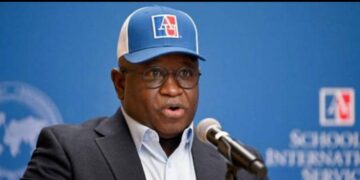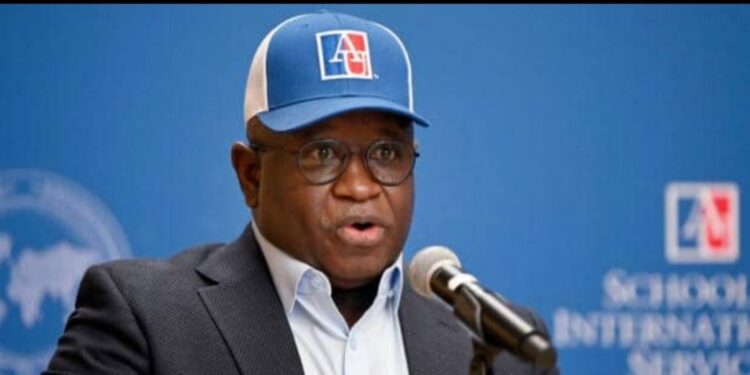By Enyichukwu Enemanna
The President of Sierra Leone, Julius Maada Bio has accused Washington of pressuring him to interfere in his country’s presidential polls of June 24, contradicting the position of the United States in which it said the election in which Bio was re-elected lacked transparency.
“When the elections were at the height of calling the results, this is when the problems started,” President Bio said on Friday while speaking at an event at American University in Washington.
He said the Election Commission of Sierra Leone (ECSL) “had done all their calculations, collations, all the processes. I was now requested to stop them from calling the result by the United States. So I don’t know who is accusing who of interference.”
“They are an independent, semiautonomous body,” the president said of the ECSL.
He added, “I declined, and I said I have never called this institution, I am not going to call them now.”
When “the United States casts doubt on the credibility (of the election), you are calling for a coup,” Bio said.
“The same representatives of the United States have told us that in any case, they just wanted a second round. In any case, I was going to win, because all the polls have made that clear.”
The 59-year-old Bio was reelected in a disputed vote criticized by both the opposition and international observers.
Delegations from the United States, European Union, France, Ireland and Germany had in a joint statement after the election said they shared the concerns of national and international observers “about the lack of transparency in the tabulation process.”
Ahead of the poll, some thought the country’s soaring inflation and dire economic straits would give the opposition an opening. Bio won with 56.17 percent of the ballot, just above the 55 percent needed to avoid a runoff.
The US had in August announced visa restrictions on those “believed to be responsible for, or complicit in, undermining democracy in Sierra Leone,” including through vote rigging or intimidation of election observers.
The names of those targeted were not made public, and visa decisions are confidential under US law.




































